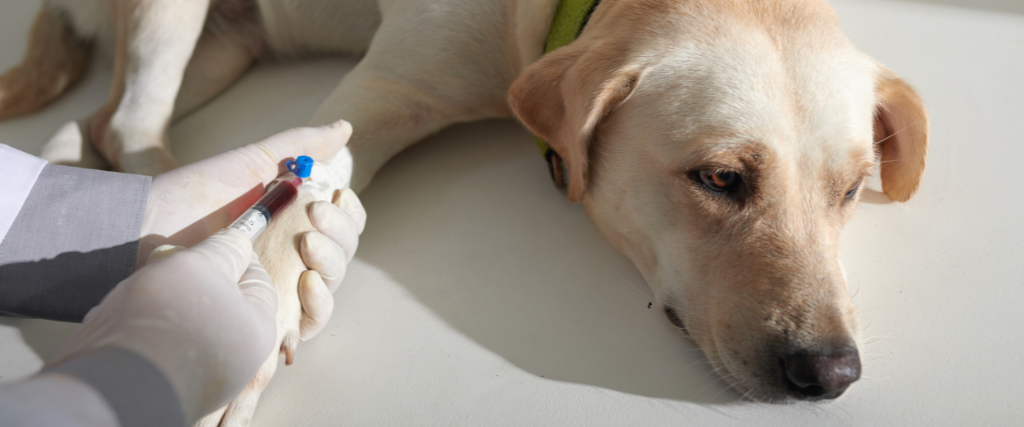What Is Cushing’s Disease In Dogs?
Cushing's, also known as hyperadrenocorticism, is a disease that occurs most commonly in dogs when their adrenal glands produce too much cortisol. Cortisol is a hormone that is released under stressful events. Cortisol is needed for normal bodily function, but when too much cortisol is produced, it can have harmful consequences.
Cushing’s Disease can be either pituitary-dependent or non-pituitary-dependent. About 80% of patients with Cushing’s Disease have pituitary-dependent Cushing’s. Pituitary-dependent Cushing’s disease is caused by a benign tumor on the pituitary gland. This tumor causes the pituitary gland to tell the adrenal gland to overproduce the cortisol hormone. The other 20% of Cushing’s Disease, is where dogs overproduce cortisol due to a tumor on the adrenal gland. The tumor on the adrenal gland is often malignant.

How Do You Know If Your Dog Has Cushing’s Disease?
It can be hard to recognize the clinical signs at home since they are often non-specific. Dogs with Cushing’s Disease will often drink more, urinate more, have an increased appetite, may lose hair on their body and tail, have increased panting, darkening of the skin, recurrent urinary tract or skin infections, and they can have a potbellied appearance. Your veterinarian will need to do diagnostic tests to determine if your dog has Cushing’s Disease since it cannot be diagnosed only by clinical signs.
General bloodwork will help rule in or out other illnesses and diseases that can also cause the above clinical signs. There can also be several abnormal values in general bloodwork that may make your veterinarian suspicious of Cushing’s Disease. The two more specific tests that help us diagnose Cushings disease are a Low Dose Dexamethasone Suppression Test and the ACTH Stimulation Test. The Low Dose Dexamethasone Suppression Test can often distinguish between pituitary-dependent and non-pituitary-dependent Cushing’s.
My Dog Has Been Diagnosed With Cushing Disease, What's Next For His Care?
After your dog is diagnosed with Cushing’s, you will have to decide if you want to treat him or not. If a dog with Cushing’s Disease is having clinical signs, treatment is normally recommended. Without treatment, the clinical signs such as increased urination, skin issues, etc. will most likely get worse. Dogs with untreated Cushing’s may also have a hard time healing and recovering from infections. If your dog doesn’t have any clinical signs, treatment is not necessarily recommended since the medication will not prolong your pet’s life. In patients with clinical signs of Cushing’s, treatment is often recommended because it makes the patient feel better and usually helps control the clinical signs. Treatment usually involves medication, but when a tumor is present on the adrenal gland, surgery may be recommended. Unfortunately, Cushing’s is often an expensive disease to treat. The medication can be costly and there is a lot of monitoring with bloodwork that will be needed over the rest of your dog’s life.

Dogs with Cushing’s Disease can develop other diseases or have concurrent diseases at the same time. These diseases can include diabetes, high blood pressure, and sudden acquired retinal degeneration syndrome (SARDS) to name a few. Owners need to be prepared that if their dog has Cushing’s Disease, they may need to treat other diseases as well.
There is no way to prevent Cushing’s Disease; but regular exams, annual bloodwork screening, and recognizing potential clinical signs can lead to an early diagnosis. The advantage of an early diagnosis is the ability to manage clinical signs earlier and possibly diagnose other diseases associated with Cushing’s so that treatment can be started sooner and hopefully help your pet have a more comfortable life.
Here at Haywood Animal Hospital, we recommend bi-annual exams and lab work for any dog over 10 years of age. We recommend the same annually in younger dogs. Let us know and we can schedule your pet today.
